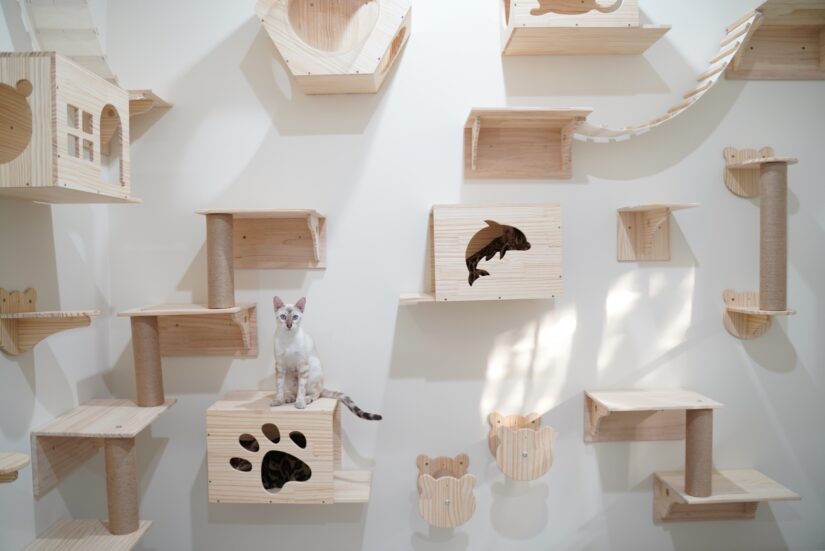Spring is here once again and, with it, a new baby season. Across the province, wild animals of all kinds are busy starting families. Sadly, these families are vulnerable to attacks from cats venturing outdoors to enjoy the warmer weather too.
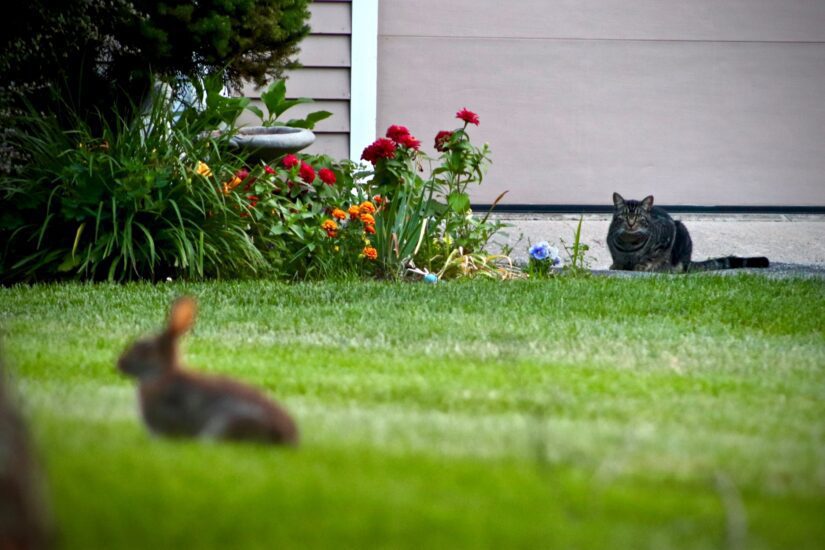
Cats are natural hunters
With their keen eyesight and agile bodies, cats are built to hunt. When allowed to roam outdoors, they can prey upon a range of wildlife species. A recent analysis of wild animal intake and health data from across Canada revealed that cat predation is a top-ranking issue for songbirds, hummingbirds and aerial insectivores such as swallows. Cat attacks are also a significant source of trauma for bats, hares and rabbits.
While not every cat has the same motivation to hunt, the fact remains that, collectively, outdoor cats pose a threat to wild animal welfare and survival — babies in particular.
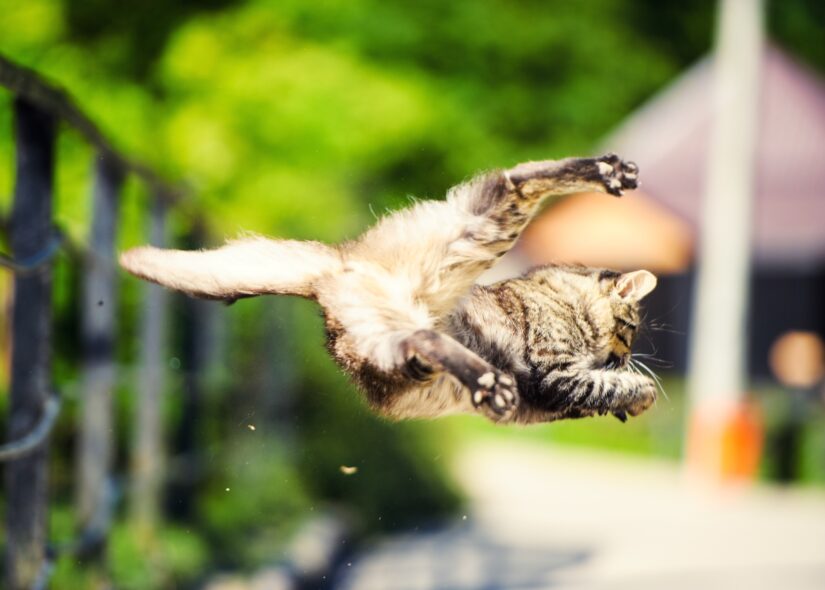
Cats put wild babies at risk
The same study confirmed what wildlife rehabilitators have long known: that cat attacks are most common during baby season — from May to August — and that young animals are the most frequent victims.
Wild babies are vulnerable to cats, of course, because they cannot escape their nest or den or defend themselves from an attack. Parents of many species do their utmost to protect their young but, in the end, they are no match for a fixated feline.
Even a mild injury from a cat can still harm wild babies. The bacteria that cats carry in their saliva can cause a fatal infection from just a small puncture wound or scratch.
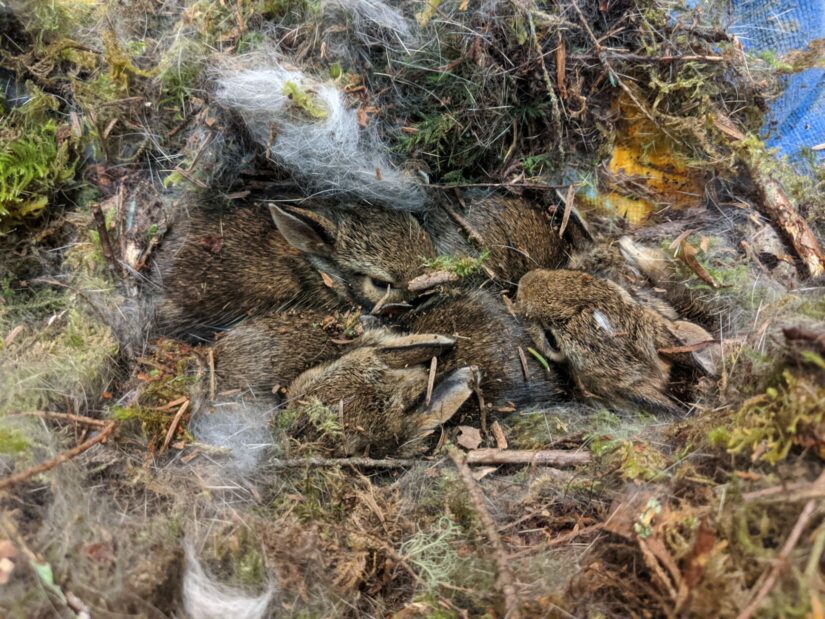
Less obvious than direct predation but potentially just as deadly are situations where a cat attack leaves behind orphaned young. In fact, even the death of one parent can still put wild babies at risk because of the burden this places on the surviving parent.
Should you come across a baby wild animal who you suspect is injured or orphaned, please do not attempt to care for them yourselves! As cute as they are, they will do best in the care of an expert. Contact your local wildlife rehabilitator for assistance or call the BC SPCA Animal Helpline at 1-855-622-7722 for advice.
Protecting wild babies from cats
Given that hunting is a natural behaviour for cats, the most effective way to prevent them from harming wildlife is to keep them indoors — particularly during times of the year like baby season when wild animals are most vulnerable.
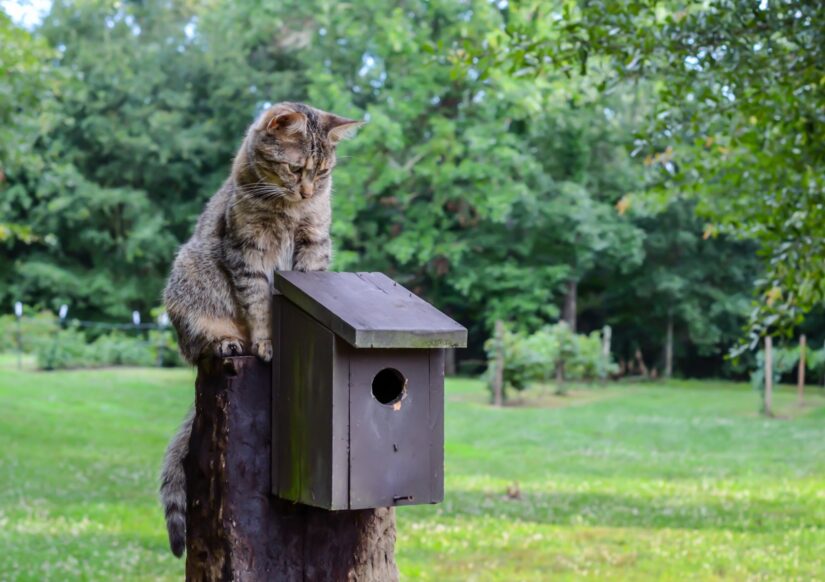
Keeping cats indoors not only helps to keep wild animals safe but also helps keep cats safe.
While it is true that cats are predators, they are also a prey species. Being outdoors leaves them vulnerable to attacks from wild animals such as coyotes. Other risks they face outdoors include vehicles, fights with other cats, diseases and parasites, frostbite and secondary poisoning from eating rats or mice who have ingested rodenticides. Indoor cats are protected from these threats.
Making life a little ‘wild’ for indoor cats
Compared to the great outdoors, the indoor environment can be monotonous for a cat. It takes a conscious effort on our part as their guardians to provide them with the stimulation and interaction necessary to keep them mentally and physically healthy.
Set aside daily time for play
Play is an important means of engaging a cat’s mind and body. Letting them stalk, chase, pounce on and bite a toy provides a rewarding outlet for their instinctual hunting behaviour.
Provide safe outdoor time
Time outdoors engages all of a cat’s senses. This can be accomplished safely by:
- Supervising them as they roam in a backyard
- Taking them for short neighbourhood adventures on a harness and leash
- Building a simple catio to let them come and go from an enclosed outdoor space as they please
Find out other tips to enrich an indoor cat’s life.
